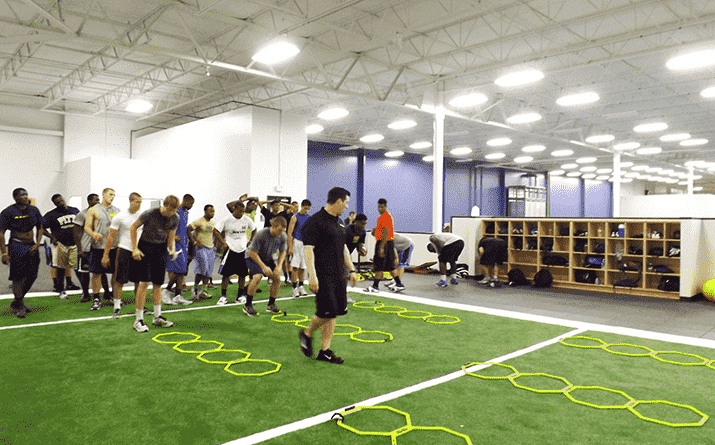In this article, you will learn about the connection between sports teams and athletes in the context of business jet charters. We will explore how sports teams and athletes utilize private jet services for their travel needs, the benefits of flying privately for teams and players, and the impact on their performance and schedules. By understanding the relationship between sports and private jet charters, you will gain insight into the advantages and considerations of this mode of transportation for athletes and teams.
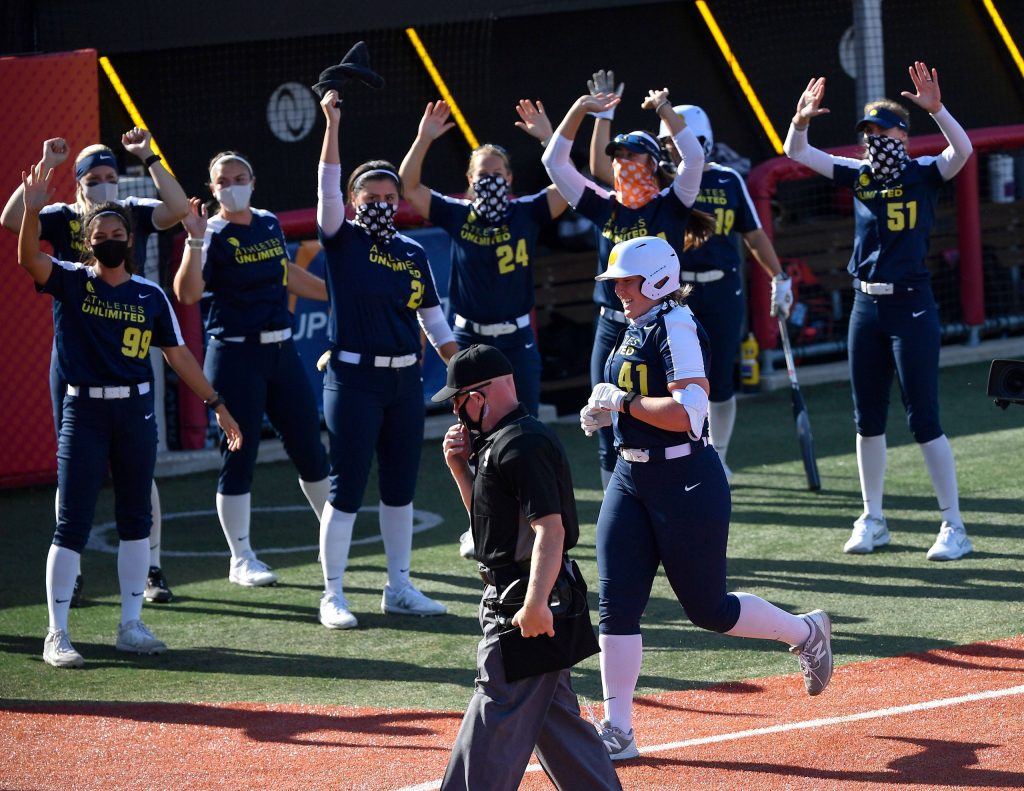
This image is property of media.newyorker.com.
Sports Teams and Athletes
Sports teams and athletes play a significant role in our society and have a profound impact on various aspects of our lives. From the economy and tourism to personal development and entertainment, the importance of sports cannot be underestimated. In this article, we will explore the various dimensions of sports teams and athletes and understand why they hold such high regard.
Impact on Economy and Tourism
Sports teams and athletes have a tremendous impact on the economy, particularly through their contribution to the tourism industry. Major sporting events such as the Olympics, FIFA World Cup, and Super Bowl attract visitors from all around the world, leading to increased spending on accommodations, transportation, dining, and shopping. These events not only generate revenue for host cities but also create job opportunities for local residents.
Additionally, professional sports teams have a significant economic impact on their respective cities. Stadiums and arenas are built, which leads to urban development and the revitalization of neighborhoods. The influx of fans for home games boosts local businesses, including restaurants, hotels, and retail shops. The economic ripple effect from sports teams and athletes is felt not only in major cities but also in smaller towns that rely on sporting events to drive their local economies.
Promotion of a Healthy Lifestyle
Sports teams and athletes serve as role models for promoting a healthy and active lifestyle. Their dedication to physical fitness and rigorous training regimes inspire individuals of all ages to engage in regular exercise and sports activities. By highlighting the importance of physical well-being, they encourage people to maintain a healthy weight, prevent chronic diseases, and improve overall quality of life.
Participation in team sports also fosters social interaction and builds a sense of community. Whether it’s joining a local soccer league or cheering for a favorite team, sports provide a common ground for individuals to come together and form connections. This sense of belonging and camaraderie contributes to mental well-being and helps combat social isolation.
Inspiration and Role Models
Sports teams and athletes have the power to inspire and influence generations. Their incredible achievements and dedication to their craft motivate aspiring athletes and fans alike to pursue their dreams relentlessly. From record-breaking performances to overcoming adversity, these stories of triumph inspire individuals to push their limits and strive for greatness.
Athletes also serve as role models, instilling values such as discipline, determination, and sportsmanship. Their success stories teach invaluable life lessons, emphasizing the importance of hard work, resilience, and teamwork. By watching their favorite athletes, individuals learn the significance of setting goals, embracing challenges, and never giving up.
Popular Sports Teams and Athletes
Now, let’s take a closer look at some of the most popular sports teams and athletes that have captured the hearts of millions worldwide.
Top Professional Sports Teams
The world of professional sports is filled with iconic teams that have achieved legendary status. Whether it’s the New York Yankees in baseball, Manchester United in soccer, or the Los Angeles Lakers in basketball, these teams have built a legacy with their stellar performances and loyal fan base. The success and popularity of these teams can be attributed to their historic rivalries, talented players, and rich history.
Famous Athletes in Different Sports
In every sport, there are exceptional athletes who have left an indelible mark on the game. Considered legends in their respective sports, athletes like Michael Jordan, Muhammad Ali, Serena Williams, and Cristiano Ronaldo have redefined excellence, breaking records and shattering barriers. Their outstanding skills, charismatic personalities, and unwavering passion have earned them worldwide recognition and unwavering fan support.

This image is property of substackcdn.com.
The Business of Sports
Behind the glitz and glamour lies the business aspect of sports. The industry of sports has its own set of dynamics that contribute to its continued growth and success.
Sports Sponsorships and Branding
Sports teams and athletes are highly sought after by companies for sponsorships and endorsements. Brands recognize the immense reach and influence these athletes and teams have on their fan base, making them valuable marketing assets. From apparel and footwear companies partnering with athletes to technology and beverage brands sponsoring teams, these collaborations result in lucrative deals that provide financial support to both athletes and teams.
Branding is another essential aspect of the sports business. Teams have carefully crafted logos and merchandise, creating a strong brand identity that resonates with fans. Athletes, on the other hand, build their personal brands through endorsement deals, social media presence, and philanthropic efforts, ensuring they remain influential figures both on and off the field.
Financial Aspects of Professional Sports
The financial aspects of professional sports are vast and complex. From player contracts and salaries to stadium financing and broadcasting rights, the revenue streams in sports are diverse. Professional sports leagues, such as the NBA, NFL, and Premier League, negotiate multi-billion dollar TV rights deals, enabling fans to watch games from the comfort of their homes while generating substantial income for the teams and the league.
Player salaries have also skyrocketed over the years, with teams competing to secure top talent. The heightened interest in sports has led to increased media coverage, higher attendance rates, and lucrative sponsorship deals, all contributing to the financial growth of the industry. However, it is crucial to strike a balance between the financial aspects of the sports business and the integrity and spirit of the game.
Training and Preparation
Behind every successful athlete lies years of hard work, training, and preparation. The physical and mental demands of sports require athletes to be in peak condition, both physically and mentally.
Physical Conditioning and Skill Development
Athletes undergo rigorous physical conditioning programs to enhance their strength, speed, and agility. These programs are designed to improve performance while reducing the risk of injuries. From endurance training and weightlifting to speed drills and flexibility exercises, athletes push their bodies to the limits to achieve optimal physical fitness.
In addition to physical conditioning, athletes also focus on skill development. Practicing the fundamentals of their sport, refining techniques, and honing their skills through countless hours of training contribute to their success on the field or court. Coaches and trainers play a crucial role in guiding athletes through this training process, ensuring they reach their full potential.
Mental and Psychological Training
Success in sports goes beyond physical abilities; mental fortitude and psychological strength play a vital role in an athlete’s performance. Mental training techniques, such as visualization, goal-setting, and mindfulness, help athletes develop a winning mindset, cope with pressure, and stay focused during high-stakes competitions.
Additionally, athletes often work with sports psychologists to address any mental or emotional challenges they may face. These professionals help athletes manage stress, build resilience, and overcome performance anxiety. Mental and psychological training are essential components of an athlete’s preparation, enabling them to perform at their best when it matters the most.
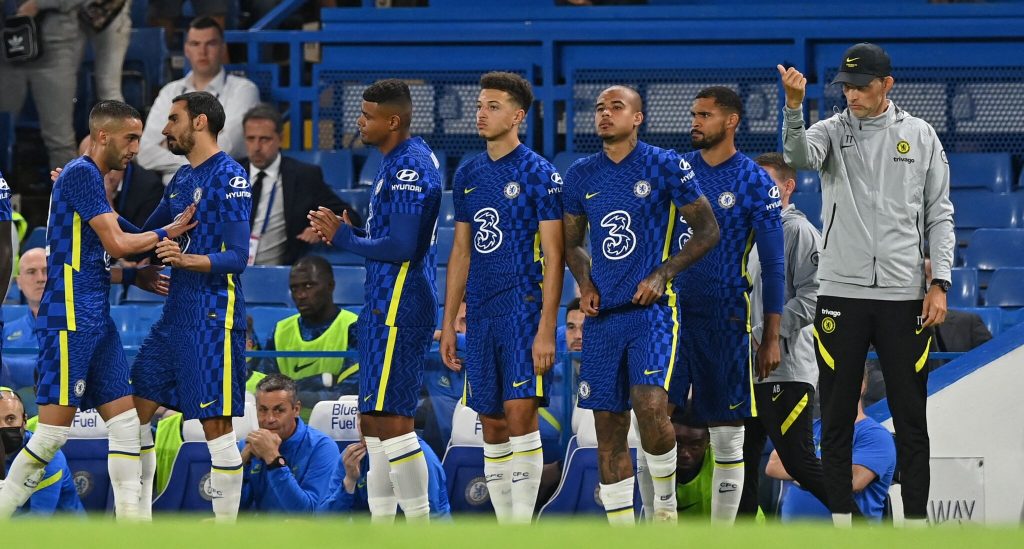
This image is property of static01.nyt.com.
Sports Injuries and Rehabilitation
Despite all the precautions taken, sports injuries are an unavoidable part of an athlete’s journey. Understanding common sports injuries and the subsequent treatment and recovery processes is crucial for athletes, coaches, and medical professionals.
Common Sports Injuries
Sports injuries can range from minor sprains and strains to more severe conditions like fractures and concussions. Some of the most common sports injuries include ankle sprains, knee injuries (such as anterior cruciate ligament tears), tennis elbow, and shoulder dislocations. These injuries can result from overuse, poor technique, or high-impact collisions during sports activities.
Treatment and Recovery
The treatment and recovery of sports injuries require a multidisciplinary approach. Athletes often work closely with sports medicine physicians, physical therapists, and athletic trainers to ensure proper diagnosis, treatment, and rehabilitation. Depending on the severity of the injury, treatment may include rest, physical therapy, medication, or, in some cases, surgery.
Rehabilitation programs are critical in helping athletes regain strength, mobility, and function. These programs typically involve exercises focused on strengthening the injured area, improving flexibility, and gradually reintroducing sports-specific activities. The goal of rehabilitation is to enable athletes to return to their sport safely and perform at their pre-injury level.
Sports and Technology
Technology has revolutionized the world of sports, enhancing performance, improving safety, and providing valuable insights into athletes’ capabilities.
Use of Data Analysis and Performance Tracking
Data analysis has become an integral part of sports training and performance evaluation. Athletes and teams utilize cutting-edge technology to gather data on various aspects of their performance, including speed, endurance, heart rate, and technique. This data helps them identify areas of improvement, optimize training programs, and make informed decisions during competitions.
Performance tracking devices, such as GPS watches and heart rate monitors, have also gained popularity among athletes. These devices provide real-time data on an athlete’s performance, helping them monitor their heart rate, distance covered, and pace during training sessions. This information enables athletes to track their progress, set goals, and make adjustments to their training regimen for better results.
Sports Equipment and Technological Advancements
Advancements in sports equipment have contributed significantly to athletes’ performance and safety. From lightweight running shoes to carbon fiber skis, technological innovations have allowed athletes to push the boundaries of their sports. Equipment manufacturers invest heavily in research and development to create products that enhance an athlete’s performance by optimizing factors like aerodynamics, stability, and impact absorption.
Sports technology has also improved the safety of athletes by reducing the risk of injuries. Innovations such as high-tech helmets with impact sensors, smart fabrics that regulate body temperature, and protective gear with advanced shock absorption capabilities provide athletes with added protection during training and competitions.
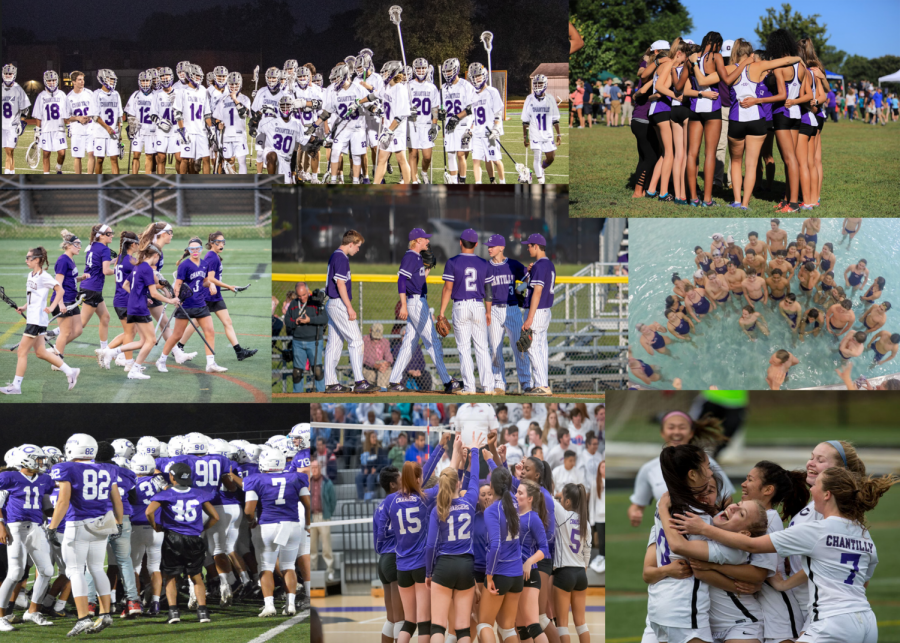
This image is property of chantillynews.org.
Sports and Social Issues
Sports have the power to bring about positive change and address social issues that transcend the playing field. Athletes and sports teams have been at the forefront of promoting inclusivity, advocating for social justice, and raising awareness on various social causes.
Gender Equality and Inclusivity
Efforts to promote gender equality and inclusivity in sports have gained momentum over the years. Female athletes have made significant strides in breaking gender barriers and achieving recognition on par with their male counterparts. Organizations such as the International Olympic Committee and FIFA have implemented initiatives to increase women’s participation and create opportunities for them to excel.
Sports have also played a crucial role in raising awareness about social issues such as racial discrimination and LGBTQ+ rights. Athletes and teams have used their platforms to advocate for equality, challenge stereotypes, and promote inclusivity in the sports community and society as a whole.
Awareness and Advocacy
Through their visibility and influence, sports teams and athletes have the unique ability to raise awareness and drive change. Many athletes engage in philanthropic endeavors, using their platforms to support charitable causes and make a positive impact on society. Whether it’s donating to charity, launching their own foundations, or participating in community outreach programs, athletes leverage their status to bring attention to pressing social issues and inspire positive change.
Sportsmanship and Ethics
Sportsmanship and ethics are fundamental values that underpin the integrity and spirit of the game. Fair play, respect, and honesty are core principles in sports that athletes and teams are expected to uphold.
Fair Play and Respect
Fair play entails abiding by the rules, playing within the spirit of the game, and showing respect for opponents, officials, and spectators. Athletes are expected to compete with integrity, without resorting to cheating, aggression, or unsportsmanlike behavior. The essence of fair play lies in valuing the intrinsic values of competition, such as teamwork, camaraderie, and the pursuit of excellence.
Respect is another essential aspect of sportsmanship. This includes respecting the decisions of referees and officials, acknowledging opponents’ skills and achievements, and displaying good sportsmanship both in victory and defeat. Athletes who demonstrate respect towards their peers and the game itself embody the true spirit of sportsmanship.
Anti-doping Measures
To ensure fair competition and protect the integrity of sports, anti-doping measures are in place to detect and deter the use of performance-enhancing substances. Athletes are subject to stringent drug testing regimes to maintain a level playing field and uphold the principles of fair play. The World Anti-Doping Agency (WADA) collaborates with sports federations and anti-doping organizations globally to implement and enforce these regulations.
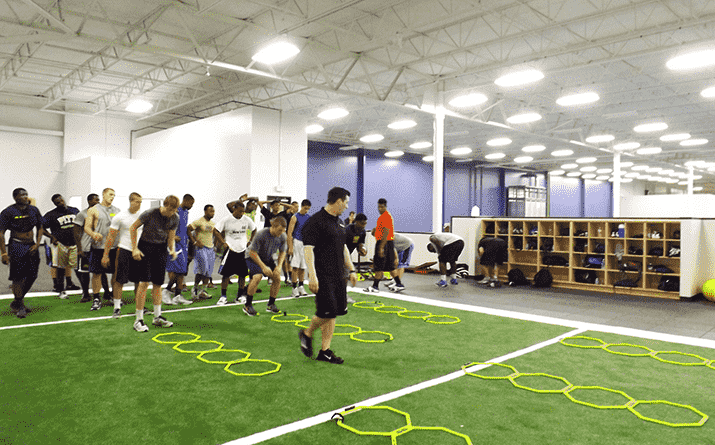
This image is property of cdn2.hubspot.net.
Sports and International Competitions
International competitions like the Olympics and FIFA World Cup showcase the pinnacle of sporting excellence, uniting nations and bringing people together.
Olympic Games
The Olympic Games, held every four years, highlight the collective efforts and achievements of athletes from around the world. Athletes compete in a wide range of sports, demonstrating their skills, determination, and national pride. The Olympic Games go beyond the realm of sports, promoting peace, friendship, and cultural exchange among nations.
FIFA World Cup
The FIFA World Cup stands as the most prestigious tournament in soccer, captivating fans worldwide. The tournament features national teams from different countries competing for the championship title, creating a sense of unity and national pride. The World Cup transcends borders and language barriers, uniting people across the globe in celebration of the beautiful game.
Sports and Personal Development
Participation in sports offers numerous opportunities for personal growth and development, instilling valuable qualities that extend beyond the playing field.
Teamwork and Collaboration
Team sports teach individuals the importance of teamwork, collaboration, and effective communication. Athletes learn to rely on their teammates, understand their roles within the team structure, and work towards a common goal. These skills extend to other areas of life, such as the workplace, where collaboration and teamwork are fundamental to success.
Leadership and Responsibility
Sports provide individuals with opportunities to develop leadership skills and assume responsibility. Athletes, whether as team captains or influential players, learn to lead by example, motivate their teammates, and make critical decisions under pressure. These leadership qualities contribute to personal growth, shaping individuals into confident and responsible individuals.
The Role of Coaches and Trainers
Coaches and trainers play a crucial role in guiding athletes throughout their careers, providing mentorship, guidance, and expertise.
Skills Development and Strategy
Coaches work closely with athletes, identifying strengths and areas for improvement. They design training programs, hone techniques, and develop strategies to maximize an athlete’s potential. Coaches also provide critical feedback, motivation, and psychological support, guiding athletes through both triumphs and setbacks.
Mentoring and Guidance
Coaches often serve as mentors and role models for athletes, imparting valuable life lessons beyond the sports arena. They instill discipline, work ethic, and resilience, helping athletes navigate the challenges they face both on and off the field. The guidance provided by coaches goes beyond skills development, shaping athletes into well-rounded individuals.
Sports Careers and Opportunities
For some, sports become more than a hobby or passion; it becomes a career path. The sports industry offers a multitude of career opportunities for individuals who wish to turn their passion for sports into a profession.
Professional Athletes
Becoming a professional athlete is a dream for many individuals. The journey to becoming a professional requires dedication, perseverance, and immense talent. Athletes compete at various levels, from local and regional competitions to international tournaments, in the hope of catching the attention of scouts and securing contracts with professional teams or organizations.
Sports Management and Administration
Apart from playing, the sports industry offers numerous career paths in management and administration. Sports managers, agents, event organizers, and sports administrators play pivotal roles in the effective functioning of sports organizations. These professionals handle various aspects of sports operations, including player contracts, sponsorships, event planning, and marketing.
Sports and Entertainment Industry
Sports and the entertainment industry have a close relationship and often intersect in various ways, offering the audience an immersive and engaging experience.
Sports Events and Spectatorship
Sports events provide fans with the opportunity to witness their favorite teams and athletes in action. The electrifying atmosphere, passionate fans, and the thrill of the game create an unparalleled experience. Whether it’s attending a live sporting event or watching it at home, sports events bring people together, fostering a sense of unity and community.
Sports Broadcasting and Media Coverage
Sports broadcasting has become a significant component of the entertainment industry, with millions tuning in to watch their favorite sports events. Television networks, online streaming platforms, and radio stations provide extensive coverage of sporting events, offering fans live broadcasts, in-depth analysis, and behind-the-scenes stories. The media plays a crucial role in building the hype and excitement surrounding sports, ensuring fans stay connected to their favorite teams and athletes.
Conclusion
Sports teams and athletes hold a unique position in society, influencing various aspects of our lives. Whether it’s the impact on the economy and tourism, the promotion of a healthy lifestyle, or the inspiration and role models they provide, sports teams and athletes play an indispensable role. From the viewpoint of personal development, the business of sports, sports injuries and rehabilitation, to social issues and the international stage, the world of sports is vast and multifaceted. As we continue to celebrate the achievements of sports teams and athletes, let us appreciate the values they uphold, the positive impact they have, and the joy they bring to millions of fans around the world.
